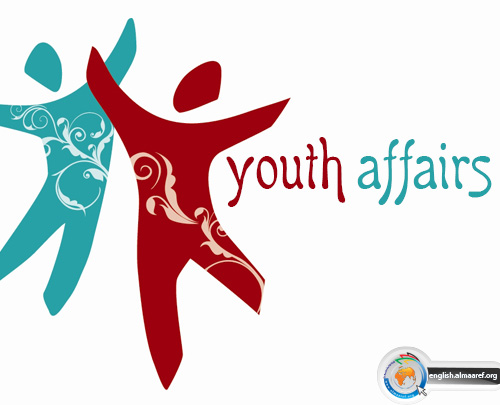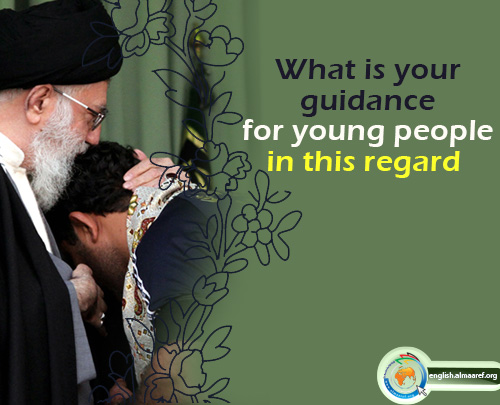At a certain time and place, it may be through one thing that people receive
guidance, however it is possible that in another time and place, that same thing
may lead to misguidance and being led astray!
If the same logic that causes an old, illiterate woman to become a true believer
is used by an intelligent, learned person, then it may actually cause him to
being led astray. Furthermore, it is possible that a book that is in agreement
with the thoughts of a particular time and which is in conjunction with the
opinions of a specific era and at the level of their thinking, and which would
lead to the guidance of the people (of that time), may actually be classified as
a book of misguidance in another time period!
We have books that, in their own time period, fulfilled the requirements and
responsibilities for when they were written and hundreds and thousands of people
received guidance through such a book; however those same books – in our time
period – would not guide anybody! These books are deemed too simple and could
lead to the misguidance and cause doubts and confusion in the minds of the
people and thus, would be classified as books of misguidance - such a book whose
buying and selling, printing and distributing would not be free of doubt!
It is amazing! A book that had led thousands – rather hundreds of thousands of
people to the path of true guidance in the past may now be classified as a book
of misguidance? Yes! With the exception of the Heavenly Book (the Noble Qur'an)
and the true words of the Ma'sumins (a.s.), any other book we speak about has a
particular message that is aimed at a specific and limited time period. When
that era is over, the book is then of no use.
This issue that I have just spoken about is a very important, societal issue and
even today is still regarded as an unknown, strange and unfamiliar issue that we
must overcome, however this issue has never been discussed nor brought up. I do
not anticipate that this issue will be made completely clear in this gathering
of ours, however it must continuously be stated that we must accept that the
ways to guidance are specific for their own time periods.
With this said, it is necessary that we now bring forth proofs from the Islamic
texts in relation to this topic so that may be known that what we discuss here
is the view expressed in the Islamic works.
I started out my discussion with a verse of the Qur'an which states:
﴾Call others to the path of your Lord through wisdom and good exhortation
and argue with them in the best possible manner.﴿1
According to the unanimous opinion of the commentators of the Qur'an, this verse
presents us with three different ways to invite people and offers us three
distinct ways of guiding the people. Each of these three ways of guidance must
be used in their own specific instances.
This verse tells us that we must call people to the way of our Lord. The word
Lord is a special term meaning one who is responsible for upbringing and
nurturing. Since this level of guidance is a level of invitation as well as
upbringing and nurturing, the word used here is Lord. Therefore, we are told to
invite people to the path of our Lord – the path which people must be nurtured
and trained upon – but through what means?
We must use wisdom. Wisdom is in the meaning of persuasive, firm speech which
has neither marks of alteration in it, nor one in which doubts can occur. In the
terminology of the people of logic and the philosophers, this is speech whose
preamble is 100% based on pure certainty. By this we mean that the people must
be called to the path of the Lord with proof, wisdom and knowledge that is 100%
pure and which is completely unadulterated. The commentators of the Qur'an have
mentioned that inviting people through the use of logical, intellectual wisdom,
proofs and evidence is limited to one particular group of people who have the
ability to make use of this method.
The second method is through good exhortation meaning that we must call the
people to their Lord through good words, advice and warnings which their heart
and soul will be in agreement with. There are some people who do not possess the
ability to express their beliefs through the use of their intelligence and
academic proofs, and if an intellectual issue is presented to them, they
immediately become confused.
Thus, the way to guide them is through good council and warnings. Such people
must be guided through employing stories, narratives and wisdom-based anecdotes
and anything that would bring ease and comfort to their hearts. The
responsibility of exhortation and good council is to work on the heart of a
person, whereas the job of intellectual and logical proofs deal with the brain
and thinking ability of a person. A majority of the people are still at a level
of basing issues which they believe in on their heart, soul and emotions and are
not at a level of using their intellect and thoughts.
The third stage is that of arguing with the people in the best possible way.
Thus, if a person is put face to face with someone else whose purpose is not to
arrive at the truth and whose goal is not to understand what the actual facts
are - rather he has come and is ready to speak, argue and bring up points of
contention - then the other one too must dispute with that person as he is
quarreling with.
However, we must argue with such a person in the best possible manner such that
the argument does not stray from the path of the truth and reality. Therefore,
we must not resort to unfairness or injustice in arguments, nor can we resort to
lying or other similar things.
This verse gives us many different ways through which we can guide people and
each way has been put in place for a particular instance in time. Thus, it is
clear that the ways through which we can guide people are not all the same, nor
are they equal!
* Book: Guiding the Youth of the New Generation. By: Ayatullah
Murtadha Mutahhari.
1. Suratul Nahl (16), Verse 125



















